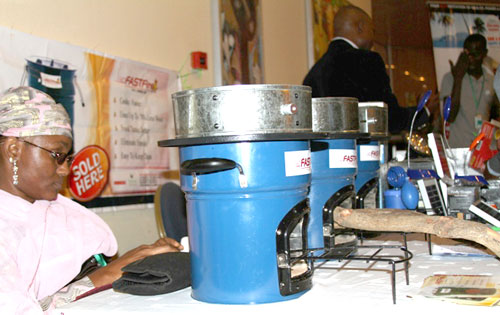In a bold move to drive climate action and position Nigeria as a hub for green investment in Africa, the Lagos State Government is set to launch an 80-million clean cookstove initiative under the Paris Agreement Crediting Mechanism (PACM).
The project, expected to roll out officially on June 25, 2025, is already gaining traction as a model for subnational climate leadership and sustainable development.
This initiative aligns with Nigeria’s pledge under the Paris Agreement to reduce greenhouse gas emissions (GHG) by 20% unconditionally and 47% conditionally by 2030.
In keeping with this commitment, Lagos has made significant strides, unveiling a five-year climate action plan in 2021, placing a statewide ban on styrofoam, and prioritising green transport solutions.
The 80-million Paris Agreement crediting mechanism (PACM) clean cookstoves project is projected to support Lagos carbon action initiatives and attract green investments in the country.
In collaboration with GreenPlinth Africa and international partners, Lagos is now implementing this mechanism at the subnational level, potentially unlocking billions in climate capital for Nigeria and the broader African continent.
The distribution of 80 million clean cookstoves across vulnerable communities in Nigeria is targeted at reducing indoor air pollution, minimising deforestation, and cutting emissions.
According to Ope George, Lagos State commissioner for Economic Planning and Budget, the initiative is represents a significant leap towards a greener and healthier Lagos State.
Green Financing
To put the PACM initiative into action, Lagos will also launch the Lagos Carbon Exchange (LCX), modelled after California’s successful subnational carbon market.
LCX will facilitate the buying and selling of carbon credits, enabling both public and private stakeholders to invest in climate-smart solutions
Under the framework, each of Lagos’ 57 Local Government Areas (LGAs) and Local Council Development Areas (LCDAs) will receive ₦1 billion annually for green projects. Among the projects considered are climate-smart health facilities, health insurance for beneficiary households, planting of 400 million economic trees and monthly stipends for families under a pay-to-cook scheme.
To streamline the project and ensure accountability, a Project Advisory Board will be chaired by Governor Babatunde Sanwo-Olu, with Niger State Governor Mohammed Umar Bago as deputy. Six vice-chairs will represent Nigeria’s geopolitical zones, the private sector, NGOs, and civil society
Additionally, the state will recognise Clean Cookstove Champions across LGAs and LCDAs to drive behavioural change and local ownership of the project.
The Special Adviser to the Governor on Climate Change and Circular Economy, Titilayo Oshodi, emphasised that the initiative will help de-risk low-carbon investments and international climate financing.
“Lagos will serve as the anchor state, leading the deployment of the first six million stoves,” she noted.
As global attention intensifies on climate action, Lagos is proving that local innovation, backed by international cooperation, can lead the way.
With the clean cookstove initiative and the carbon exchange in place, the state is not only reducing emissions but also setting a new benchmark for green development in Africa.
The Lagos State Government in Nigeria is leading green investments in Africa through its carbon exchange project, aligning with global climate action mandates under the Paris Agreement. Nigeria pledged a significant reduction in greenhouse gas emissions, and the launch of an 80-million clean cookstoves project under the Paris Agreement Crediting Mechanism (PACM) aims to bolster these efforts. This initiative plans to distribute the stoves across vulnerable communities, generate carbon offsets, create jobs, and improve public health. Importantly, the Lagos Carbon Exchange (LCX) is set to launch in June 2025, marking it as Africa's first subnational carbon exchange, facilitating compliance-driven carbon trading.
In collaboration with GreenPlinth Africa and other partners, this initiative will invest in local government and council areas for green development projects, aiming to position Lagos as a leader in climate-smart governance. The government's efforts include renewable energy projects, climate-smart health facilities, and economic activities such as the planting of 400 million trees. A governance framework will guide the project's implementation, ensuring compliance and the pursuit of climate adaptation and sustainable development goals. Recognition and engagement of local champions will drive further awareness and participation. Stakeholders are invited to support this comprehensive initiative.






